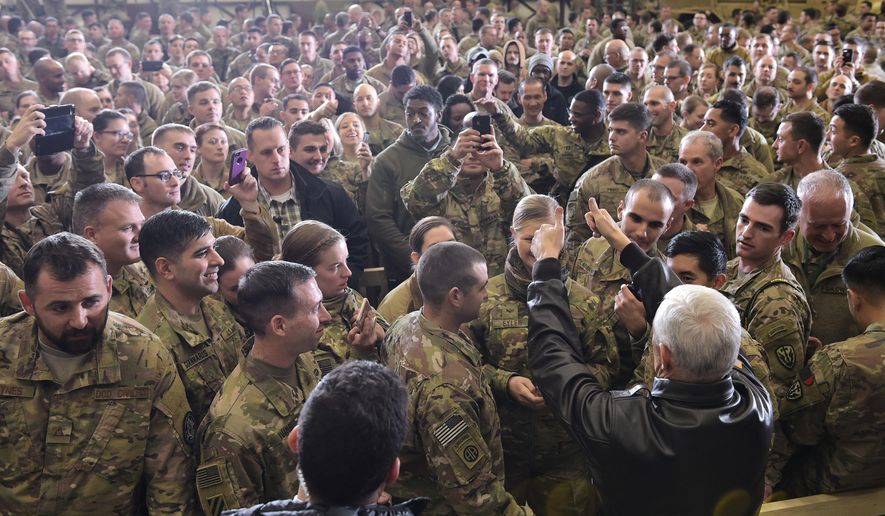OPINION:
The West cannot solve the problem of Afghanistan alone. The U.S. and its European allies can treat the symptoms, but they can only stave off the absolute disaster for a period of time, at the cost of much blood and treasure.
The underlying conditions — a mix of radical Islam, tribalism and economic underdevelopment — are what bleed Afghanistan year after year. To address those conditions, only Afghanistan’s neighbors can actually do something in the tribal no-man’s land where those problems fester. Only the nations of the region can calm the animal spirits of the tribes in the mountains of Central Asia.
Today, a relatively moderate Afghanistan government headed by President Ashraf Ghani is fighting for its life against the Taliban, the radical Islamist movement supported by Pakistan, and new elements of Islamic State. This is after the Obama administration reduced troop levels and left the people who risked their lives to bring forth a new Afghanistan in the line of fire.
The U.S. still has troops in South Korea, Japan, and Germany for a reason — to provide stability. American troops will be in Afghanistan for a long time, but they cannot bear the heavy load by themselves.
What clearly needs to happen is a massive effort to bring the Afghan warlords out of the Middle Ages and into the 21st century. America has already spent its trillions; America’s towering $20 trillion national debt pretty much precludes further massive spending on nation-building. The effort to save Afghanistan has to come from nations of the region who have the most to gain from a prosperous and stable Afghan state.
The Trump administration has grudgingly made an open-ended commitment to support Kabul. It is crucial for the world to continue to help in the effort. The question is: How best do it?
In addition to defeating the Taliban and Islamic State, Afghanistan will need to come to some type of political arrangement. It will also need a long-term reconstruction.
We closed our eyes to the instability and despair in the country once already, after the Soviets left in 1989. That hands-off approach brought us Sept. 11. Afghanistan is where al Qaeda planned the attacks, safely ensconced in its terrorist haven.
The main thrust of President Trump’s foreign policy is America first. The U.S. national interest is paramount. We definitely have a need to make sure Afghanistan doesn’t turn back into an anarchic sanctuary for warlords. The emerging Trump doctrine also calls for real burden-sharing with other countries who have a stake in Afghanistan’s future.
One country that has taken a lead on the Afghanistan reconstruction is Kazakhstan. Astana is committed to giving a higher profile to the continuing plight of Afghanistan. I say, let them help.
China has shown an interest in Central Asia and is providing a long-distance port for Kazakh goods. There is no reason Kabul cannot provide a route for goods and commodities from the region to Pakistan and India. The “Belt and Road” project of President Xi Jinping is pulling the region kicking and screaming into the modern trade and investment-based economy.
Kazakhstan is a natural partner of the U.S. in dealing with Afghanistan. Mr. Trump’s recently released U.S. National Security Strategy states the his administration “will work with the Central Asian states to guarantee access to the region to support our counterterrorism efforts.” With its seat on the U.N. Security Council from this year, and its presidency of the Council this month, Kazakhstan can play an immediate role in galvanizing international efforts, organizing a ministerial level debate on Central Asia and Afghanistan later this month.
Mr. Trump is to meet with Kazakh President Nursultan Nazarbayev next week. Washington should take Astana up on the offer to secure and develop Afghanistan.
• L. Todd Wood is a former special operations helicopter pilot and Wall Street debt trader, and has contributed to Fox Business, The Moscow Times, National Review, the New York Post and many other publications. He can be reached through his website, LToddWood.com.




Please read our comment policy before commenting.